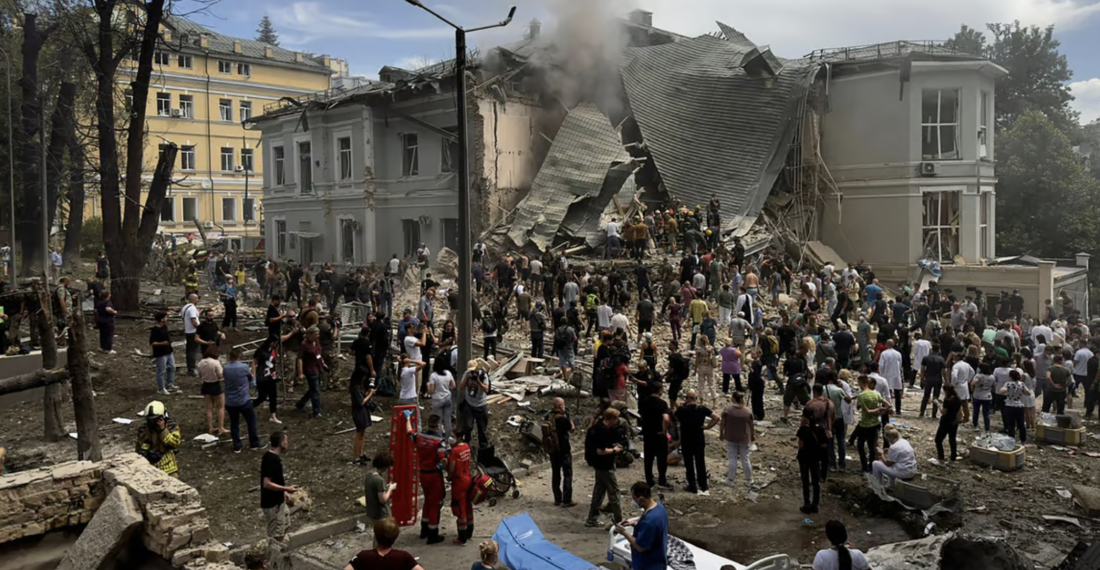The European Union has condemned several waves of large-scale attacks on several Ukrainian cities carried out by Russia on Monday (8 July).
These attacks, targeting Kyiv, Dnipro, Kryvyi Rih and Pokrovsk, among others, have caused a large number of civilian casualties, with dozens killed and many more injured. Okhmatdyt, the largest children's hospital in Ukraine, was directly hit by a rocket. A maternity hospital was later also damaged. Several residential buildings and several substations of the main power company were completely destroyed.
“By targeting Okhmatdyt, a symbol of Ukraine’s childcare medicine and treatment of children cancer, and attacking children, who are the most vulnerable, Russia once again demonstrates its cruelty and that it is utterly insincere about peace and peace negotiations,” says a press release by the European External Action Service. “Under international humanitarian law, hospitals enjoy special protection. Children are never and can never be a legitimate target; they must be protected at all times.”
The EU recalls that over the past two and a half years, Russia has “continuously terrorising Ukraine’s population by waging its illegal war of aggression, intentionally targeting innocent civilians and civilian infrastructure massively across Ukraine’s territory, with large-scale missiles and drone attacks, increasingly using glide bombs”.
The EU also notes that deliberate attacks on civilians and civilian objects, which do not constitute a military objective, "may constitute war crimes and may amount to crimes against humanity".







